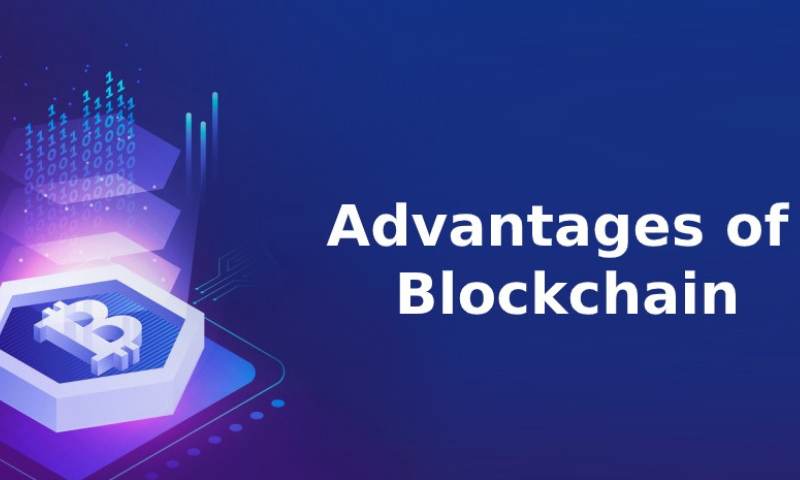Advantages of Blockchain: Unveiling the Power of Decentralization
Imagine a digital fortress, shielding your valuable data, every block grouted with trust. Here, the advantages of blockchain stretch far beyond buzzwords into the bedrock of modern security, transparency, and efficiency. Peel back the curtain and you’ll see an ever-evolving blueprint of decentralized might: an unbreakable chain strong enough to transform how we interact with the digital world. Join me on this eye-opening journey to uncover how blockchain’s iron-clad ledger seals your assets away from tampering, scribes a clear trail for all to follow, slashes red tape in financial dealings, and paves the path for direct, intermediary-free transactions across industries. Strap in—this is blockchain unraveled.
Enhancing Security in the Digital Realm
The Role of Cryptocurrency Security
In my work with blockchain, I’ve learned that security means a lot. Think about cryptocurrency security. It’s vital for keeping digital money safe. It stops bad actors from stealing or messing with funds. With blockchain, every transaction gets locked in. Once something is added, it can’t be changed or removed. This stops fraud and protects people’s money.
Blockchain’s Immutable and Tamper-Proof Nature
Blockchain’s power is in its unchanging records. What does “immutable” mean? It means once data is in there, it stays put. That’s strong! It keeps someone from sneaking in changes. Because of this, people can trust it more. It’s like a fortress for data.
Businesses love this for tracking goods. From factories to stores, every step is clear and can’t be faked. This makes sure that what you buy is what you expect. It’s true for other stuff too, like keeping health records safe or making sure votes in an election are right. Blockchain makes cheating hard and builds trust. This is how we use technology to keep things fair and safe for everyone.
Revolutionizing Transparency and Trust
Improved Transparency with Distributed Ledger Technology
Blockchain brings a key benefit: improved transparency. Every trade made on a blockchain is recorded. This record is on a ledger everyone can see. This means no single person or group controls the data. The ledger is spread across many computers. This makes the data open and easy to check.
With blockchain, we see who owns what, clear as day. Any changes made are there for all to see. This is huge for businesses! If you send or get goods or money, you can track them easily. No need to fear sneaky changes. You can trust the records are true and fair.
Now, what is this ledger we keep talking about? Think of it as a book. But, this book is special. Instead of one person having it, we all do. If someone tries to slip in a fake line, it won’t match our books. And because we all have this book, everyone knows it’s fake right away. This shared book is always up to date.
Blockchain shines here. Let’s say Bob gives Alice a digital coin. Now, every copy of the book updates. This happens on many computers at once. It’s like a magic book that writes in itself. The writing can’t be rubbed out or changed. That’s big for trust.
Fostering Trust Through Verifiable Data Accuracy
But how does blockchain make sure the data is right? Every trade, or ‘transaction,’ has checks. The checks use math puzzles — tough ones. Computers solve these to agree that the trade is good. This is our ‘consensus.’ Consensus is key. It’s how new entries get added. It’s democracy in action, on the blockchain.
These checks stop fraud and mistakes. They make sure each trade adds up. If data changes, or someone tries to cheat, the checks don’t clear. The bad trade gets tossed out. Truth wins.
In blockchain, we chat directly with each other. No middle-man. You deal with me, I deal with you. We save time and stay honest. And with everything open for checking, trust grows. This helps in finance a lot! Money moves with no hidden steps. Lower and clear costs too. Sweet deal!
The beauty of blockchain is also in data that doesn’t vanish. Once we put something in the blockchain book, it stays. No take-backs or cover-ups. It’s clear as day, now and forever. This never changing, always there record is what we mean by ‘immutability.’ Big word, simple idea. It’s like carving in stone. Your mark stays.
To keep your trust, blockchain keeps your data spot on. You can look back at any point. You’ll find the full story of each trade, each move of money or goods.
In the end, blockchain changes the game by making trust a sure thing. We see everything that happens. We know it’s right. All thanks to a shared ledger and the checks that guard it. Now, that’s power to the people! And that, my friends, is a game-changer for how we do just about everything.
Increasing Efficiency in Financial and Business Operations
Lowering Transaction Costs with Blockchain
Blockchain slashes what we spend on deals. How? It removes middlemen. This means no banks to pay fees to, and no lengthy waits for them to open. With blockchain, money moves fast and cheap. We’re talking cents for a payment, not dollars. This is great for all, from big companies to regular folks.
Businesses save heaps. Take sending cash across borders. It’s often a wallet-buster. But blockchain cuts costs big time. This is ripple effect stuff. Lower prices can lead to better wages and cheaper goods. And who doesn’t love that?
Accelerating Processes with Smart Contracts and Faster Settlements
Ever get tired of waiting for a deal to close? We all do. With smart contracts on blockchain, we can wave goodbye to those long waits. These contracts do the work of many, but faster and without mistakes.
Here’s how they work. You strike a deal, and the contract records it. Once the terms are met, it does what was agreed, right away. Money for goods. Keys for cash. All without a call or a paper signed.
Trust in these quick deals is high, because nobody can mess with them once they’re made. This trust builds and keeps deals moving like never before.
Smart contracts don’t just speed things up—they change the game for how we do business. And in a fast-moving world, that’s a power we all need.
With blockchain, we see a future where business runs smoother and faster, all while keeping more cash in our pockets. Now isn’t that something to get excited about?
Expanding the Horizons of Decentralization
Empowering Peer-to-peer Transactions and Disintermediation
Imagine sending money directly to a friend. No bank, no extra fees, just a simple one-to-one exchange. This is one big win of blockchain: it makes peer-to-peer transactions a breeze. Through this tech, anyone can transfer value without needing a middleman. It cuts out banks and cuts down costs. It’s not all just money either. This can work for trading games, art, or even property.
For example, with smart contracts, a house sale is safer and quicker. No more paperwork pile-ups. The contract does the work, checks the deal, and seals it without fuss. Everything is stored on the blockchain, so it’s super safe. It can’t be changed or lost. This means less chance of fraud or mistakes.
Implementing Decentralized Systems in Diverse Sectors
Blockchain isn’t just about paying for stuff. It’s changing whole industries. In healthcare, it keeps patient records secure and easy to share with the right people. In supply chains, it tracks items from factory to store, so you know where stuff comes from.
Blockchain in finance means faster, cheaper cross-border payments. No need to wait for a bank to open or a payment to clear. The money moves in minutes, not days. And with improved transparency, companies can show they’re good for their word. This trust is gold in business.
In areas where trust is shaky, like voting, blockchain can be a game-changer. It can make sure each vote is counted right, with no chance of cheating.
But it’s not all about the big stuff. Small wins count too. Like keeping loyalty points all in one place, so they’re easy to find and use. Or making it easier for artists to sell their work without losing money to galleries or online platforms.
Blockchain does have challenges, like needing a lot of energy. But the good news is, experts are working on it. They’re making blockchains that use way less power.
Blockchain is growing, and as it does, things are going to change — for you, for businesses, and for everyone. The best part is, we’re just getting started. There’s a lot more to come, and it’s exciting to think about what’s next.
In this post, we’ve dived into how blockchain boosts security, transparency, and efficiency. We’ve seen how crypto keeps your money safe and how blockchain’s design makes sure nobody messes with your data. We talked about how clear, shared records build trust and let everyone check the facts. We also explored how blockchain cuts costs and speeds up deals with smart agreements.
Then we looked at how all this is changing business far and wide, letting folks deal with each other directly and shaking up different fields with new, decentralized systems. My final take? Blockchain is more than just tech talk; it’s a real game changer that’s reshaping our world right now. It’s making things more secure, open, cheap, and fast, and this is just the start. Embrace the change – it’s here to stay!
Q&A :
What are the top benefits of utilizing blockchain technology?
Blockchain technology offers numerous advantages, such as enhanced security, improved transparency, increased efficiency and speed of transactions, and reduced costs. The decentralized nature of blockchain makes it resistant to fraud and unauthorized alterations, while cryptographic security measures protect against hacking and data breaches. Transparency is ensured as all network participants share the same documentation, which can only be updated through consensus. This also reduces paperwork and streamlines processes. Furthermore, by eliminating the need for intermediaries, blockchain often results in cost savings for businesses.
How does blockchain technology enhance security for transactions?
Blockchain enhances security through its structure of blocks, each containing transactions, which are linked and secured using cryptography. Once a transaction is entered, it is irreversible and becomes visible to all participants on the network, which makes any fraudulent activity easily detectable. Consensus methods used in blockchains prevent unauthorized transactions from being added to the chain. This immutable and transparent ledger system significantly reduces the potential for hacks and fraudulent alterations, ensuring a secure and trustworthy environment for digital transactions.
Can blockchain technology improve the transparency of business operations?
Absolutely, blockchain technology significantly increases transparency in business operations. By allowing all participants in the blockchain network to share the same ledger that is updated through consensus, there is unprecedented accuracy and consistency in record-keeping. Changes to the public blockchain are viewable by all parties, creating a highly transparent system that can increase trust among users and reduce disputes over transactions.
What impact does blockchain have on transaction speed and efficiency?
Blockchain technology greatly impacts the speed and efficiency of transactions. Traditional banking transactions, especially those across borders, can take days to settle due to the need for verification by multiple parties. With blockchain, transactions can be completed in a matter of seconds or minutes, 24/7, because the verification process is performed collectively by nodes in the network. Additionally, the elimination of middlemen and automation of contract execution with smart contracts further streamlines processes and removes bottlenecks typically associated with conventional transaction methods.
How does blockchain technology help in reducing operational costs?
Blockchain technology helps reduce operational costs by streamlining and automating processes that traditionally require much manual input and verification. Since the blockchain does away with the need for third-party intermediaries like bankers or lawyers in transactions, the fees associated with these services are also eliminated. Moreover, blockchain’s ability to maintain a single, immutable ledger of transactions minimizes the costs associated with audits and ensures that records are accurate and secure, potentially reducing losses due to fraud or errors.


